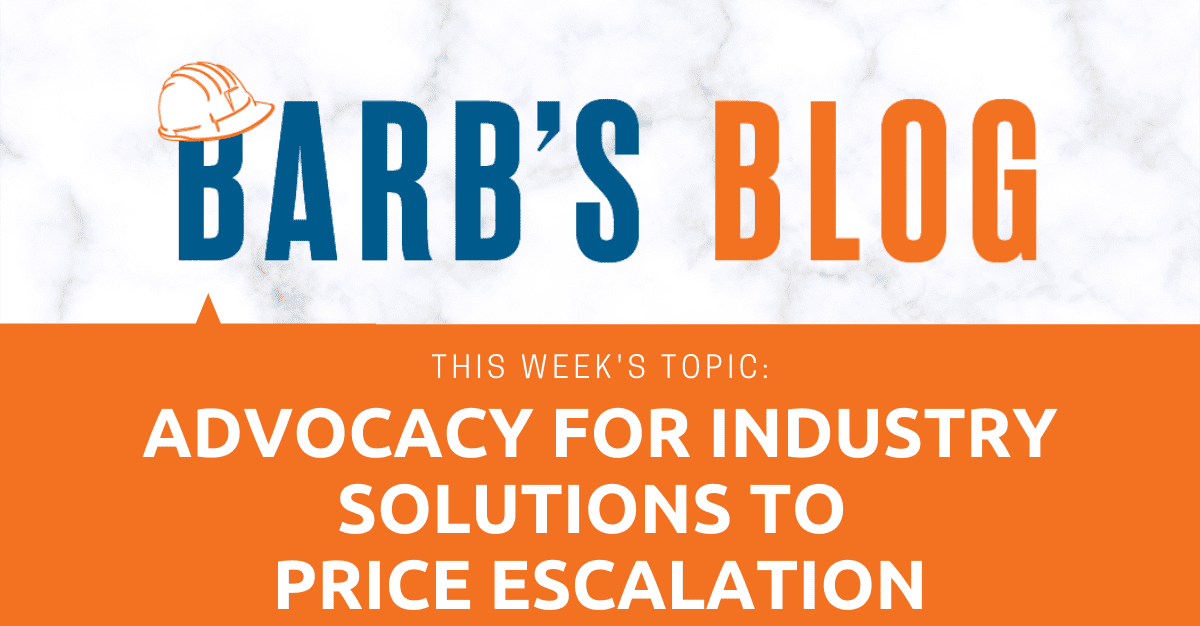
One purpose of the blog is to make sure members know what AWC is working on behind the scenes. Sometimes that information is not ready for distribution in real time. Today I want to give you an overview of the past 6 months of price escalation advocacy that I have been working on.
Last fall the effects of the supply chain/price escalation started to devastate several AWC members depending on their work scope or the supplies they work with. I started approaching agencies and municipalities to tell the story of our members and of how construction industry contracting works. I learned more about contract clauses, prices, change orders, material on hand, and more – I guess you can teach an old dog.
I had exchanges on specific projects with Hennepin County, MAC (Metropolitan Airports Commission) Minneapolis and MetCouncil for SWLRT (South West Light Rail). When I say exchanges in some instances it meant me requesting conversations and being ignored. I heard, “The contract says no price escalation increases allowed,” or “Our contract is with the GC so we don’t get involved with the subcontracts” from multiple public owners. I met with two state Senators that were sympathetic to the problem and even had some good ideas to help our members. Nothing progressed with them after the legislative session began and neither has responded to me since.
In December I connected with the Governor’s office and met with two of his policy makers. The policy maker for MnDOT and MetCouncil convened a workgroup of MnDOT/MetCouncil/AGC and led by AWC biweekly through March and April to discuss potential solutions. Through much brainstorming we identified a few exploration options that the agencies were lukewarm to.
In early April the continued escalation notices and the fuel jump proved that the problem had really become a crisis at all levels not just for AWC members. A joint letter from the industry was sent to the Governor and several Commissioners on April 12th. This letter resulted in a meeting with state agencies and the Governor’s office on May 2nd. In the meeting information was shared on what accommodations are currently being given from the agencies. Agencies were given information on what the industry position is, what other states are implementing to address the problem, and a document listing the most recent increase notices for several commodities. We were asked to provide specific proposals that would help address the issues which we did, and we are currently awaiting a response.
Finance and Commerce printed a thorough article last week that included some soft public owner responses. I have been reviewing any accommodation language that has been brought forward. All language to date that we have seen remains subjective at best with no real regulatory or contractual change to protect the contractor’s bottom line.
We continue to push for a shared risk approach to dealing with the volatile environment we are in. We are asking for solutions for work under contract and for future project bidding. I ask that you continue telling me the impacts you are facing and share any examples where accommodations have worked for you. We are not going to back down from trying to find a solution that takes the burden off the construction industry. We will inform you of any progress we make.
— B
